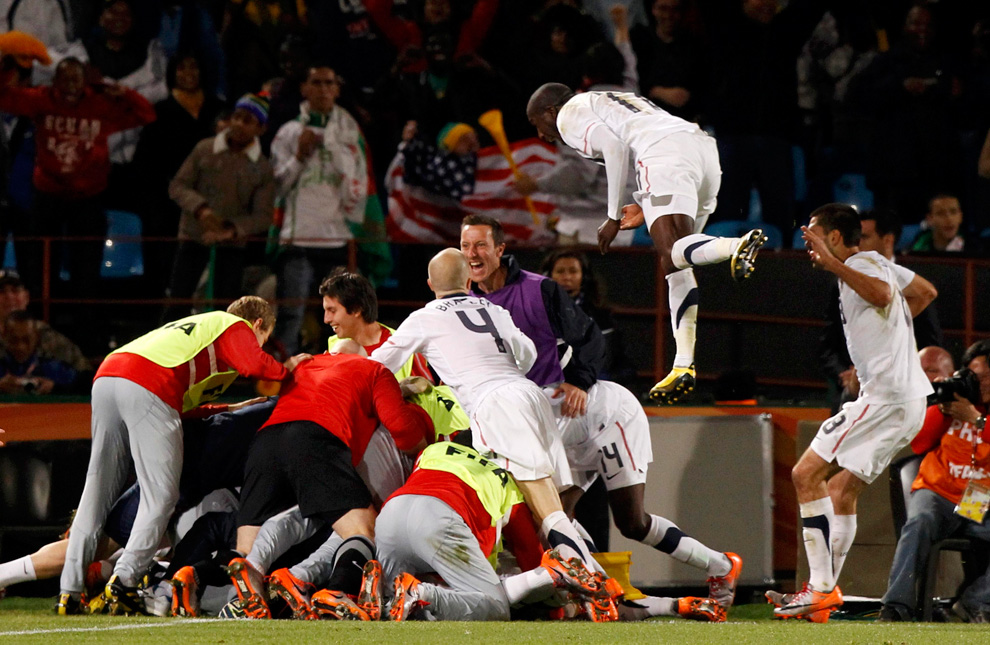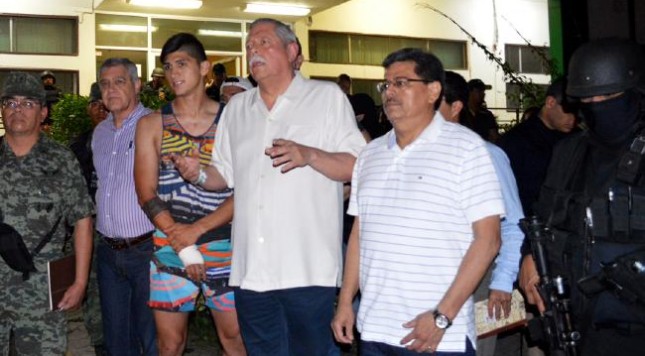In what was a major incident in the world of soccer over the weekend, 25-year-old Olympiakos and Mexican player, Alan Pulido, was kidnapped in his home state of Tamaulipas, taken by armed captors. He and his girlfriend were held at gunpoint after leaving a party at 11:30 p.m. on Saturday, and Pulido was forcibly seized, while they left his girlfriend behind, who then alerted that Pulido had been taken.
What could have been an ugly situation, was resolved rather quickly as Pulido has since been found and is free from his captors. Contrary to an earlier report that Mexican police had a planned rescue set up, various outlets are now reporting that it was Pulido himself that found an opportunity and liberated himself from his captors. It is reported that he was alone with one of his captors, found a way to obtain a cell phone, called the Mexican emergency number and managed to overpower his captor until the police arrived.
Thankfully, Pulido’s situation didn’t end in a tragedy, but the grim reality is that his story is one that doesn’t happen too often as kidnappings in Mexico rarely end with fortunate outcomes.
According to Telesur, since Mexican President Enrique Peña Nieto took office in December 2012, kidnappings in Mexico have risen by 19 percent. Since he took office up until April of this year, 7,556 people have been kidnapped in Mexico, which averages to 184 people per month.
To make matters worse, the Mexican government doesn’t seem to do anything about these kidnappings. And really, why would they? With the rampant corruption that reaches to the highest levels of Mexican government, an underfunded and understaffed police force that gets paid minimal wages to constantly put their lives in danger due to cartel violence, its easy to see why no one government body is eager to find these missing people, who may or may not be victims of cartel violence.
But, these high-profile cases — such as Pulido’s — bring into the light that Mexico has a problem that the government needs to fix. And, sadly, Pulido’s hasn’t been the most infamous case of violence against footballers in Mexico.
Take the case of Rubén Omar Romano, who was manager of Mexican club Cruz Azul in 2005. The team was certainly destined to do great under Romano’s leadership until the day of July 19, 2005 when he was kidnapped in broad daylight after a training session.
In news that rocked Mexico, Romano had just left a practice session with his team when five armed men ambushed him and his driver, trapping his car. The assailants fired four shots, then dragged the coach out of his BMW, threw him into one of their vehicles and sped off. Three blocks away they transferred the coach to another car and escaped.
After a harrowing 65-day ordeal, Romano was liberated thanks to the Agencia Federal de Investigación, or Federal Investigation Agency (AFI), who were able to locate him in a low-income neighborhood in Mexico City and arrested his captors.
There is also the case of Indios de Ciudad Juárez, who rose to prominence after achieving promotion to the Liga MX in 2008-2010. The irony was that the team was doing so well when the city lived through it’s toughest time, as Juárez was considered the murder capital of the world during those years. Cartel violence ravaged the Mexican city, and the border states in general, and it led to violence against the players as well.
Players, coaches and staff were victim to threats and crimes during their time with Indios. Marco Vidal, a United States-born midfielder was robbed of his Audi A4 at gunpoint, as were several staff members of Juárez’s front staff, and one poor soul was unfortunate enough to have his car stolen and once he bought another, he had that one carjacked as well.
This put into reality the fact that these acts of violence could have easily escalated to a situation similar to Pulido’s, where instead of a car being taken, it could have been a human life in danger.
Lastly, there is the case of Salvador Cabañas who, thanks to the talented medical staff in Mexico, was shot in the head and was lucky enough to survive to tell the tale.
On Jan. 25, 2010, Cabañas (then a player with Club América) was at a bar in Mexico City when a man, who turned out to be a member of the Beltrán-Leyva Drug Cartel, approached him in the bathroom. After some taunting by the shooter led to some heated words being exchanged, the assailant pulled a gun on Cabañas and threatened to shoot him. Cabañas challenged the man to pull the trigger and the man did, shooting Cabañas in the forehead.
Cabañas underwent a craniotomy and the doctors decided that it was too risky to proceed with extracting the bullet, so they did not. Although he surprisingly played football two years later, he was never the same as he was with América and he decided to retire after failing to maintain a spot in the Paraguayan third division and the Brazilian fourth division. A promising career for the Paraguayan player was cut short due to his own hubris and the fact that, somehow, people are allowed to enter public spaces with weapons.
These examples of violence against the most prominent people in Mexican society, people that are looked to as heroes in their country, needs to be addressed further as Mexican people still live in fear of these abductions. Also, the fact that the government only seems to care about the lives of those with money, while working-class Mexicans that are kidnapped are sometimes never seen again, leaving their families to wonder their whole lives where their loved ones went or even if they’re still alive, adds to the pressure the Mexican government faces when it comes to the subject of human rights.
Because no person living in Mexico, whether they are a Mexican National Team member or a supporter of the Mexican National Team, deserves to undergo the traumatic experiences Pulido, Romano and Cabañas did. So it is up to the Mexican government to be held responsible, and address their shortfall of fighting for their own citizen’s basic human rights.






